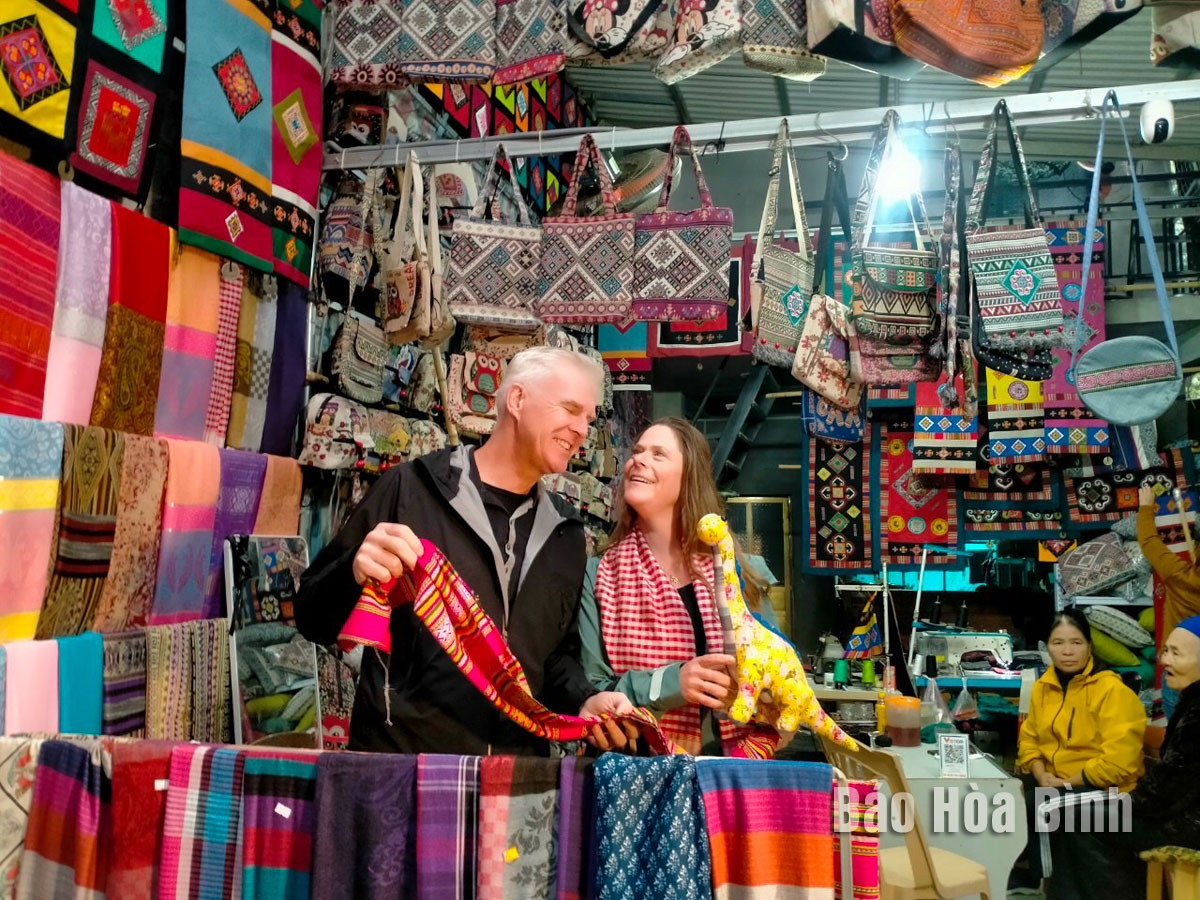
Recognising that tourism and agriculture are local strengths, Mai Chau district is committed to building a green economy through an action program with specific pathways, achieving notable results in line with the resolution of the 26th Party Congress of the district.
By making significant strides in
community-based tourism, Mai Chau has become an attractive destination for
visitors, presenting new opportunities for development.
Ha Cong Nghị, Deputy Secretary of the district
Party Committee, said that the district’s tourism has undergone a remarkable
journey, showcasing the unity of the party, government, and local ethnic
communities.
The guiding principle through three Party
congresses has been to "develop community-based tourism in conjunction with
rural development," fostering strong consensus among local authorities and
meeting residents' aspirations.
The year 2010 marked the starting point for Mai
Chau's new development journey. At that time, the district had only 11
guesthouses, 54 community-run accommodations, and eight communes engaged in
community-based tourism, generating nearly 10 billion VND (396,000 USD) in
tourism revenue per year, with around 64,000 visitors.
The only recognised community-based tourism
village was Lac in Chieng Chau commune with few tourism products, modest
service quality.
Facing these challenges, the entire political
system of Mai Chau was determined to establish a breakthrough direction for
local tourism, focusing on community-based tourism.
After 15 years, Mai Chau has successfully
realised comprehensive socio-economic development goals, with tourism emerging
as a leading sector. Today, the district has a well-organised tourism
development plan. Through effective implementation of key decisions, Mai Chau
has transformed tourism into a key economic sector.
The resolutions from the district's party
congresses have served as guiding principles for tourism activities. Numerous
synchronized and effective solutions have been deployed, enhancing state
management over tourism operations, investing in tourism infrastructure, and
linking tourism development with cultural preservation.
As a result, the number of tourism
accommodations has grown to nearly 150 establishments, including seven
community-based tourism sites, 12 hotels, 28 guesthouses, and 106 homestays,
providing jobs for over 1,200 people in the tourism sector.
Currently, there are 15 tourism and commerce
projects approved by the provincial government, with total registered capital
exceeding 1.17 trillion VND, all aiming to meet high-quality tourism demands.
These efforts have led to the service and tourism sectors accounting for 37% of
the district's economic structure by 2024, surpassing the targets set in the
26th Party Congress resolution.
Pham Van Hoan, Chairman of the Mai Chau district
People's Committee, emphasised that in addition to tourism development,
agriculture remains a pillar for socio-economic development. To elevate
agricultural production value in line with the 26th Party Congress resolution,
the district has made efforts to create new breakthroughs.
Local authorities have intensified leadership
and oversight of agricultural production. They promote the transition to
commercial crop and livestock production, tailored to each region, focusing on
sustainable value enhancement.
Ngan Van Toan, Deputy head of the Mai Chau
district Department of Agriculture and Rural Development, notes that the
district encourages residents to select suitable crops and livestock for
production. Initiatives have included intensive farming, transitioning to
commercial production, and establishing high-value farming models, such as safe
vegetable cultivation in Chieng Chau, Bao La, and Mai Hich, alongside applying
advanced technology in livestock and disease monitoring.
To improve product consumption and value, the
district invests in building collective trademarks for distinctive agricultural
products like "Thung Khe sticky corn," "Phuc San colocasia
antiquorum" "Thanh Son purple garlic," "Muong Pa black
pig," "Mai Ha wine" "Hang Kia and Pa Co black chicken"
and "Mai Chau green fish".
These effective agricultural development
strategies have contributed to the sustainable socio-economic growth of the
district. In 2024, the district agricultural, forestry, and fishery production
valued at 1.45 trillion VND, accounting for 28% of the economy. Meanwhile,
tourism remains the largest sector, reinforcing its position in the district's
economic structure.
A diverse chain of eco-tourism and resort destinations concentrated in Hoa Binh city and the districts of Tan Lac, Da Bac, and Luong Son… Along with the launch of several key high-quality resort tourism projects, these developments have reshaped the landscape and enhanced the appeal of Hoa Binh as a travel destination.
Boasting diverse terrain, a mild climate, and rich natural resources, Cao Phong district is increasingly asserting its place on Vietnam’s tourism map, attracting both domestic and foreign visitors. The district is renowned for its stunning landscapes, majestic mountains, a crystal-clear hydropower lake, and the unique cultural identity of local ethnic groups.
With its pristine landscapes, unique cultural heritage of Muong ethnic minority, and an expanding range of visitor experiences, Tan Lac district of Hoa Binh has fast become a captivating destination for both domestic and international tourists.
Until now, Sung village in Cao Son commune, Da Bac district remains the only Dao ethnic community in Hoa Binh province to develop a community-based tourism model. Beyond its untouched natural landscapes, cultural identity serves as the cornerstone attraction for visitors.
Alongside the diverse cultural identities of the Kinh, Muong, Tay, Thai, Dao, and Mong ethnic people, Hoa Binh province is also renowned as the "capital" of the northwestern Vietnamese cuisine, offering unique and distinctive dishes. At festivals, during Lunar New Year (Tet), or on significant family or community occasions, special dishes are prepared, leaving a lasting impression on visitors.
A Phong Linh (Yellow Tabebuia) flower garden in Thang village, Thach Yen commune, Cao Phong district is currently in full bloom, drawing a large number of visitors.



